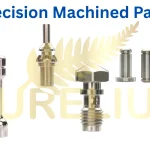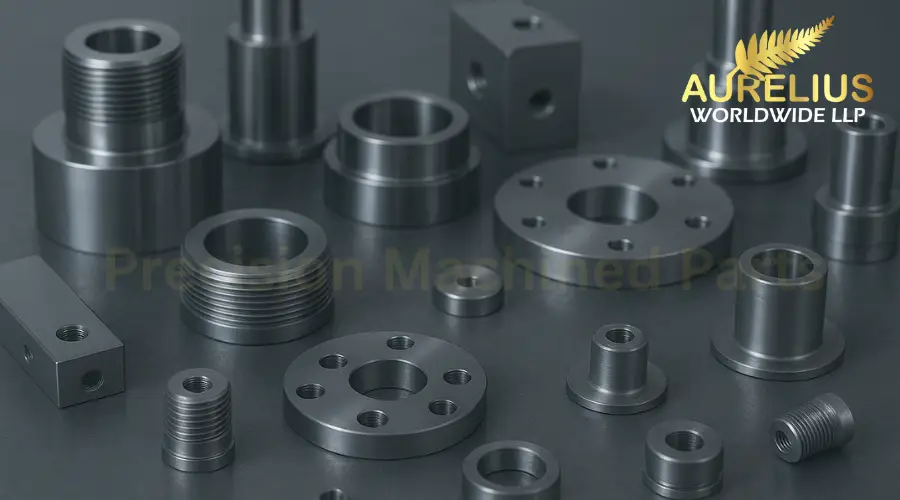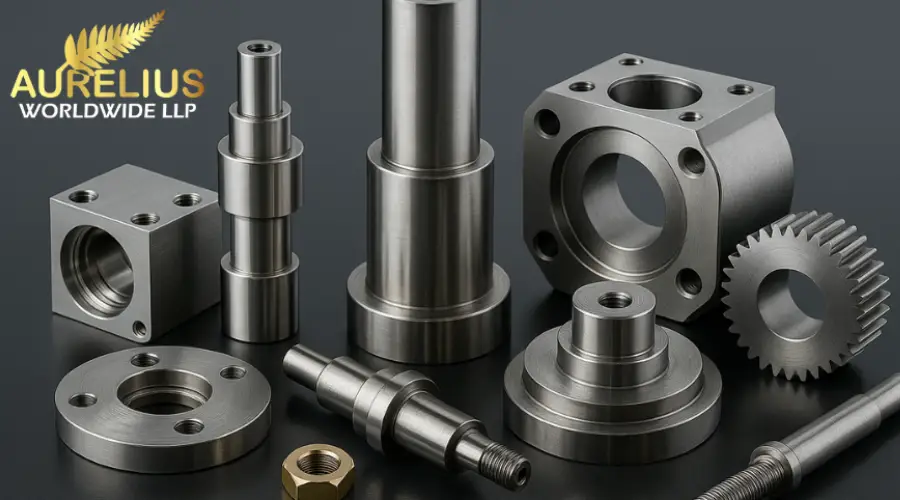
How to Choose the Right Indian Spices Exporter for Your Business
April 23, 2025
How Precision Machined Parts Improve Equipment Performance
June 16, 2025In the world of industrial manufacturing, the performance and reliability of your equipment often hinge on one crucial component: the valve. Whether you’re operating in oil and gas, water treatment, chemical processing, or power generation, choosing the right Industrial Valve Exporter can significantly impact your supply chain efficiency, product quality, and long-term operational costs.
In the complex world of industrial processes, control is everything. Whether it’s managing pressure, regulating flow, or isolating systems, industrial valves play a vital role in ensuring safety, efficiency, and reliability. These seemingly simple mechanical components are at the heart of countless industries — from oil & gas to pharmaceuticals, water treatment, power generation, and beyond. Industrial valves are mechanical devices used to start, stop, regulate, or redirect the flow of fluids — including liquids, gases, slurries, and steam — within a piping system.
At the core, valves are designed to regulate the flow of fluids. Whether adjusting flow rates in a refinery or controlling coolant in a power plant, valves provide precision control to match system needs. Industrial systems often require isolation of specific sections for maintenance or emergencies. Valves enable operators to shut off flow instantly, preventing accidents or leaks and allowing safe access to system components.
With hundreds of exporters across the globe claiming top-tier quality and on-time delivery, how do you select the right partner for your business? In this guide, we break down the essential factors to consider before finalizing an industrial valve exporter.
Verify Quality Certifications and Standards
Your first and most important filter should be compliance with international quality standards. Reputable exporters will have certifications such as:
- ISO 9001 (Quality Management Systems)
- API (American Petroleum Institute for oil & gas valves)
- CE Marking (for European Union markets)
- PED/ATEX certifications (if operating in explosive or high-pressure environments)
Always request documentation for these standards and ensure they are up-to-date. A certified exporter demonstrates not only legal compliance but also a commitment to quality control and consistent manufacturing practices.
Evaluate Product Range and Technical Expertise
An ideal exporter should offer a comprehensive range of industrial valves, including:
- Gate valves
- Globe valves
- Ball valves
- Butterfly valves
- Check valves
- Pressure relief valves
In addition to variety, assess the technical expertise of the exporter. Can they offer material selection guidance? Are they experienced in customizing valve configurations for unique industrial requirements?
Look for companies that provide product documentation, datasheets, and technical support. This level of detail indicates a well-organized operation capable of meeting diverse customer needs.
Check Export Experience and Market Reputation
Exporting is not just about manufacturing; it involves logistics, compliance, packaging, documentation, and customer service. Choose an exporter with:
- Years of experience in international trade
- Established presence in multiple regions
- Knowledge of import/export regulations in your country
You can often find these details on their company website, brochures, or export listings. Reputable exporters may also be listed on platforms like IndiaMART, Alibaba, or ExportHub, where you can review ratings and customer feedback.
Assess Delivery Timelines and Logistics Capabilities
Late deliveries can disrupt operations and result in financial losses. Discuss the exporter’s:
- Average lead times
- Inventory management systems
- Shipping partnerships
- Emergency handling capabilities
An experienced exporter will have well-defined logistics workflows and may even offer order tracking or buffer stock arrangements for repeat buyers.
Inquire About After-Sales Support
Industrial valves often operate in critical systems where failure can lead to downtime or hazards. Therefore, your exporter should offer after-sales services such as:
- Technical installation support
- Product warranties
- Spare parts availability
- Remote troubleshooting or field visits
A reliable exporter will be as responsive after the sale as they are before it. Test their support channels—email, phone, or live chat—and see how quickly they respond to queries.
Review Pricing and Payment Terms
While price is always a consideration, it should not be the sole deciding factor. Low-cost exporters may cut corners on quality or service. Instead, compare pricing in terms of:
- Product lifespan
- Quality of materials
- Customization options
- Logistics cost included or excluded
- Flexible payment options (LC, TT, etc.)
Seek exporters who offer transparent quotations with all inclusions clearly mentioned. Also, confirm if they provide pro forma invoices, packing lists, and Certificates of Origin for seamless customs clearance.
Request References and Case Studies
- A trustworthy exporter should be able to provide:
- References of existing international clients
- Case studies showcasing successful projects
- Testimonials or Google/LinkedIn reviews
Speaking with existing clients will help you understand the exporter’s strengths and weaknesses. Ask about communication style, problem-solving ability, and delivery reliability.
Look for Long-Term Partnership Potential
Finally, don’t think of this relationship as a one-off transaction. The best industrial valve exporters function as strategic partners, offering ongoing support, innovation, and value addition.
Look for signs that the exporter is committed to building a long-term business relationship, such as:
- Regular updates on new products
- Willingness to hold periodic performance reviews
- Support in product upgrades or regulatory changes
Choosing the right industrial valve exporter can be a game-changer for your business. It affects not only your production efficiency but also your customer satisfaction and profitability. By focusing on certifications, technical depth, export readiness, after-sales support, and partnership attitude, you can confidently select a supplier who aligns with your operational goals.
Remember, the cheapest option isn’t always the best. Prioritize quality, reliability, and service — and you’ll find an exporter who can help your business grow, globally and sustainably.






